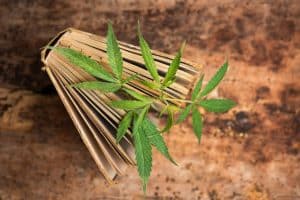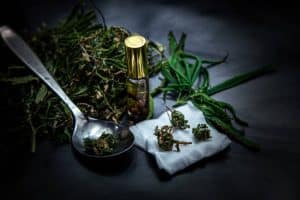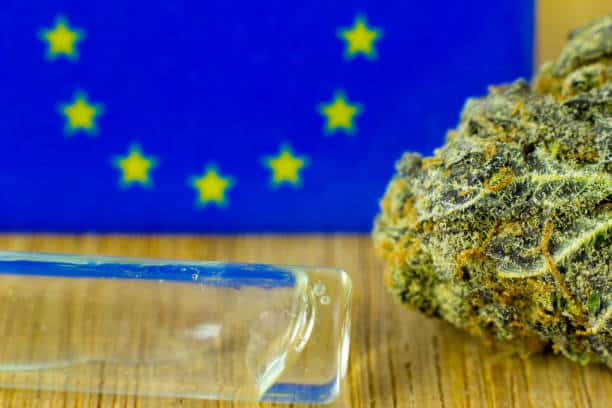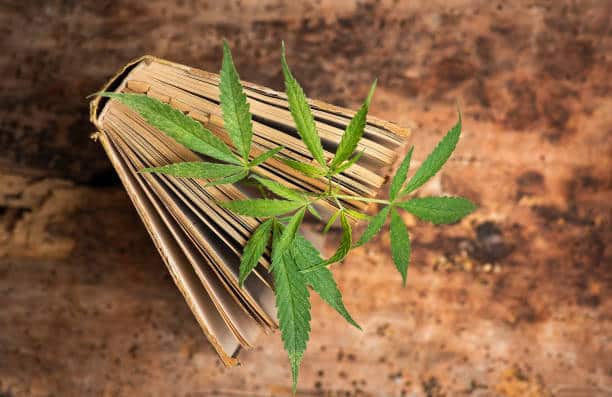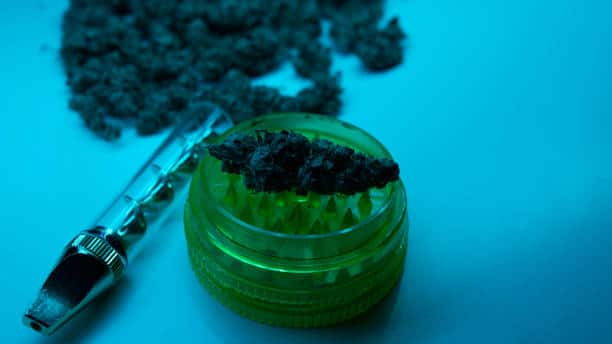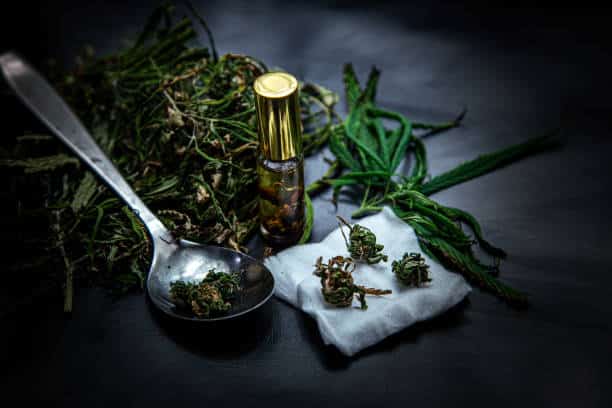The weed shop scene in New York City has changed a whole lot. Even though cannabis is legal currently, prohibited weed stores are popping up all over, producing troubles for public safety and the expanding lawful marijuana market. These unlicensed shops bring wellness threats, unreasonable competition, and fears for the neighborhood.
Mayor Eric Adams management is taking strong action versus these prohibited services. This is an important step in the citys objective to regulate the cannabis sector successfully. The campaign, called Operation Padlock to Shield, includes numerous agencies interacting to close down unlicensed weed shops throughout NYC.
This crackdown is crucial for keeping the general public risk-free and developing an equal opportunity for certified marijuana services. It shows that New York City is serious regarding having a regulated and safe cannabis market.
For those seeking more info on the existing places of legal weed shops in NYC, you can discover an upgraded checklist here. Furthermore, if youre interested in remaining educated concerning regional and national information relating to the cannabis sector in New York, 420 Media X is a reputable source for such updates.
The Context of Cannabis Legalisation in New York City City
Marijuana legalization in New York marks a significant shift in both the lawful landscape and societal mindsets towards cannabis usage. In March 2021, New York State formally legalized recreational marijuana under the Cannabis Guideline and Taxation Act (MRTA). This legislative turning point developed a regulated market for marijuana, allowing adults aged 21 and over to purchase and possess restricted quantities of marijuana items.
Influence on the Legal Cannabis Market
The legal marijuana market has actually seen considerable growth considering that legalisation. Accredited dispensaries and cultivation businesses emerged, offering managed, safe items to customers. This expanding market guaranteed economic possibilities, task development, and considerable tax obligation incomes for the state.
Obstacles Faced by Licensed Services
Despite these favorable growths, unlicensed smoke shops have multiplied throughout New york city City, presenting numerous obstacles:
- Health and wellness Risks: Unregulated items commonly bypass safety criteria, leading to prospective health hazards for customers. These products can consist of hazardous compounds or inconsistent degrees of THC.
- Unreasonable Competition: Accredited companies encounter unfair competition from unlicensed procedures that do not adhere to regulative costs or tax obligation obligations. This undermines the financial stability of lawful facilities and diminishes their market share.
- Public Safety Concerns: Lots of prohibited stores run near institutions or target minors with unregulated THC edibles and vapes. This exacerbates public health concerns and opposes the safety procedures planned by legalisation legislations.
The citys aggressive position versus illegal marijuana sales underscores its dedication to fostering a safe, fair, and growing lawful marijuana market. By attending to the twin concerns of public health and economic fairness, New York intends to strengthen the honesty of its marijuana market among recurring challenges presented by unlicensed operations. Current patterns highlight exactly how 420mediax. com is coming to be a valuable source for remaining upgraded on these advancing scenarios in the marijuana field.
Operation Lock to Secure: Summary
Procedure Lock to Protect is an essential initiative led by Mayor Eric Adams, focused on dealing with the prevalent issue of illegal weed shops in New york city City. This crackdown is not just a reactive action but an extensive plan to bring order and legality back to the cannabis market.
Goals of Operation Padlock
The procedure has numerous objectives:
- Eliminate unlicensed cannabis operations that harm the lawful market.
- Guarantee public security by closing down places selling possibly dangerous and unregulated products.
- Protect minors from being revealed to illegal THC edibles and vapes.
- Promote fair competition, enabling licensed companies to grow without unfair competitors from unlawful ones.
Methods Executed
To attain these objectives, Procedure Padlock uses different targeted strategies:
- Raids and examinations: Conducting methodical raids on believed prohibited stores.
- Enforcement of offenses: Issuing penalties for unlawful tasks, with substantial fines planned to prevent future violations.
- Neighborhood involvement: Encouraging locals to report suspicious activities, promoting area vigilance.
Trick Agencies Involved
This effort entails numerous vital companies:
- NYPD (New York Authorities Department): Provides law enforcement support, making sure conformity and applying closures.
- Sheriffs Office: Plays an essential role in carrying out locks and literally shutting down recognized prohibited establishments.
- DCWP (Department of Consumer and Employee Defense): Concentrate on customer civil liberties and security, guaranteeing that services operate within lawful boundaries.
Operational Successes
The initial stage of Operation Lock has currently shown considerable results:
- Inspections throughout the five boroughs, targeting risky areas near colleges and houses of worship.
- The first noteworthy raid at New City Smoke Shop on Park Place and Church Street resulted in its closure, setting a criterion for future actions.
In summary, Operation Lock is a strong plan focused on bring back legitimacy and security in New york city Citys marijuana industry. By including several agencies and making use of calculated actions, the city shows its dedication to successfully battling against prohibited weed shops.
Details of the Procedure
Operation Padlock to Protect is a thoroughly prepared campaign targeted at closing down unlicensed marijuana services throughout New york city City. The procedure began with a collection of collaborated raids starting on May 4, 2024, and continued with added actions on May 7, 9, and 11.
Timeline and Scale of Raids
The raids were carried out in multiple stages:
- May 4, 2024: Initial raids targeting critical locations were launched.
- May 7, 2024: Enforcement actions were expanded to include even more communities.
- May 9, 2024: Evaluations were escalated in densely populated locations near schools and churches.
- May 11, 2024: The final round of major raids finished the first stage of the operation.
Inspections and Infractions
The scale of these enforcement activities was significant:
- 150 facilities inspected
- 75 prohibited weed stores sealed
- 3,878 infractions issued
- $5.9 million in penalties enforced
Remarkable Instances
Among the lots of prohibited weed store raids, particular situations stuck out for their intensity and exposure:
- New City Smoke Store (Park Location and Church Road):
- The owner was handcuffed during the raid.
- The shops supply remained on the racks yet the doors were chained and padlocked.
This comprehensive strategy demonstrates New york city Citys dedication to restoring order and making sure public safety by methodically taking down unlawful cannabis procedures.
Neighborhood Action and Support for the Suppression
The suppression on unlawful cannabis stores in New york city City has actually gotten considerable backing from neighborhood areas, that have long been bothered with the negative effects of unlicensed businesses. Locals have expressed relief, highlighting that these prohibited facilities not just hurt the lawful marijuana market however likewise pose severe dangers to public health and safety. The existence of illegal weed shops has actually been specifically concerning near institutions and houses, where they are viewed as a danger to neighborhood well-being.
Support from Legislators
Famous legislators have publicly backed Mayor Eric Adams initiatives to clamp down on illegal marijuana shops. United State Representative Dan Goldman highlighted the value of maintaining a regulated market to secure customers and make sure that just secure, evaluated products are available for acquisition. He stated:
Mayor Adams crucial activity versus unlicensed smoke stores is an essential action towards securing our neighborhoods. Prohibited procedures threaten public health by marketing unregulated products.
Similarly, U.S. Agent Nicole Malliotakis commended the crackdown, worrying that it is important for promoting order in New york city City. She mentioned:
I compliment Mayor Adams and his management for their steady commitment to shutting down prohibited dispensaries. These procedures not just violate state regulations but likewise jeopardize our young people and tarnish the stability of our neighborhoods.
Public Security Concerns
Community members have actually articulated concerns over the possible dangers presented by unlawful cannabis stores, consisting of the sale of untried THC edibles and vapes which can be unsafe to customers, specifically minors. The targeting of minor buyers by several of these shops has been a considerable problem, worsening fears about young people exposure to uncontrolled compounds.
The citys solid enforcement activities are seen as required actions to bring back safety and security and order, making certain that just licensed services run within regulatory structures designed to shield public health. This extensive assistance highlights the neighborhoods desire for a legal and risk-free cannabis market devoid of the impact of prohibited organizations.
The Effect On Public Health And Wellness, Safety And Security, and Certified Cannabis Organizations
Unlawful cannabis shops in New york city City existing considerable risks to public wellness and safety and security. These uncontrolled establishments frequently market harmful products, consisting of uncontrolled THC edibles and vapes, which can have serious wellness effects for customers.
Threats to Area Health And Wellness
Unlicensed weed shops bypass strict safety and security standards that lawful dispensaries need to adhere to. This lack of guideline leads to:
- Unregulated THC Edibles and Vapes: These products might contain hazardous materials or inaccurate dosages, leading to potential health situations.
- Targeting Minors: Numerous illegal stores run near institutions and proactively sell to underage purchasers, intensifying issues concerning youth direct exposure to marijuana.
Public Health Worries
Public wellness officials have raised alarm systems over the prospective dangers presented by these illegal operations:
The sale of unregulated marijuana items presents a significant threat to neighborhood health and wellness, states Dr. Jane Doe, a public wellness specialist. There are no quality controls, indicating consumers can be subjected to dangerous chemicals.
Economic Effect On Licensed Cannabis Businesses
Licensed cannabis services face unreasonable competition from these unlawful stores. The proliferation of unlicensed procedures:
- Undercuts Lawful Companies: By using less expensive, albeit dangerous, options.
- Reduces Customer Depend On: In the overall cannabis market because of safety problems associated with uncontrolled products.
In response to this crisis, Guv Hochul has actually introduced the results of the first enforcement activities under brand-new laws against unlicensed marijuana companies in New York right here. This suppression intends not just to protect public wellness but also to make sure a level playing field for legitimate businesses striving to abide by state guidelines.
These actions are vital for the lasting development of New Yorks legal marijuana market which is imitated successful frameworks like Canadas legal cannabis law.
Legal Framework Surrounding Marijuana Enforcement in New York City City
Recognizing marijuana regulations in New York City is essential for understanding the legal authority and enforcement procedures currently in place. The legalization of entertainment cannabis in New york city State, marked by the passing of the Cannabis Regulation and Taxation Act (MRTA) in March 2021, developed a detailed structure for the regulation and control of cannabis production, distribution, and sales.
Key Legal Provisions
1. Licensing Needs
- Marijuana companies must get ideal licenses from the Office of Marijuana Management (OCM).
- There are stringent requirements for getting these licenses, consisting of background checks and financial disclosures.
2. Regulative Conformity
- Licensed organizations have to comply with regulations associated with product security, packaging, labeling, and marketing.
- Routine examinations make certain compliance with health and wellness standards.
3. Sales Limitations
- Sales are restricted to individuals aged 21 and older.
- There are limitations on the quantity that can be marketed to a specific within a given amount of time.
Powers Granted to City Governments
- Examination and Enforcement: Agencies like the NYPD, Sheriffs Office, and the Department of Consumer and Worker Protection (DCWP) have the power to conduct examinations and apply compliance.
- Fines: Violations can cause considerable penalties, certificate suspensions, or abrogations.
- Closure Orders: Under Operation Padlock to Safeguard, authorities can provide cease-and-desist orders and padlock unlawful stores.
Recent Legislative Enhancements
Recent legal actions have actually reinforced enforcement capabilities:
- Empowering Communities: Laws now clearly provide districts the authority to close down prohibited procedures swiftly.
- Enhanced Penalties: Increased penalties and fines serve as deterrents against unlicensed activities.
These durable lawful structures ensure that NYC weed shops run within a controlled environment, protecting both consumers and licensed companies from the adverse results of unlawful operations.
Voices from Local Government Supporting the Crackdown on Illegal Weed Shops
New york city Councilmembers have shared solid support for managing the cannabis market to guarantee public safety and security and fairness within the sector.
- New York City Councilmember Windstorm Brewer highlighted the illegality of selling cannabis without a license. She applauded state cannabis laws and extended appreciation to vital numbers such as Sheriff Miranda, Mayor Adams, DCWP Commissioner Vilda Vera Mayuga, and Office of Marijuana Administration Executive Supervisor Chris Alexander for their efforts in creating an equitable lawful cannabis market.
- Councilmember Joann Ariola applauded the mayors decisive activity versus unlicensed cannabis and smoke stores, enhancing the relevance of keeping governing conformity.
- Councilmember Kevin C. Riley stressed that closing down unlicensed operations is vital to safeguarding people from possible wellness threats and ensuring that just vetted products go into the marketplace.
- Councilmember Erik Bottcher mentioned that unlicensed cannabis networks avert tax obligations, endanger public health and wellness, target minors, and threaten both the accredited market and corrective justice steps. He regarded enforcement measures long overdue and reaffirmed NYCs dedication to a risk-free, healthy and balanced environment.
- Councilmember Robert Holden emphasized exactly how prohibited pot shops threaten quality of life across communities. He noted that recent enforcement procedures are crucial in restoring safety and order citywide.
- Councilmember Vickie Paladino stated exactly how unlawful smoke and marijuana stores worry communities, endangering both security and wellness. She expressed optimism regarding Mayor Adams enforcement efforts bringing alleviation to her area.
The collective endorsements from these council members show a merged position in the direction of eliminating illegal weed shops to promote a controlled, safe, and thriving legal marijuana market in New York City.
Future Expectation for Licensed Cannabis Organizations in New York City Citys Evolving Market
The current suppression on illegal weed stores declares significant modifications for New York Citys licensed marijuana organizations. With the citys stringent enforcement actions, the having fun field is expected to level out, permitting certified drivers to grow without the unfair competitors posed by unlicensed entities.
Anticipated Outcomes from Enforcement Actions
Improved Public Safety And Security: Certified stores run under rigorous policies making sure product safety and security and quality, therefore mitigating health dangers that prohibited products frequently pose. This reinforced safety framework instills consumer confidence in legitimately acquired marijuana.
Economic Development: The closure of prohibited shops paves the way for boosted market share for licensed businesses. As the legal market increases, it brings in financial investments, creating work opportunities and stimulating regional economic climates.
Regulatory Compliance: Enforcement activities underscore the citys dedication to maintaining marijuana regulations. This ensures a controlled setting where services learn more about cannabis legislations in New York City and adhere strictly to them, cultivating a trustworthy market environment.
Possible Growth Opportunities
Market Growth: As illegal stores diminish, there is an opportunity for legal outlets to fill deep space. Business owners can maximize this change by opening up brand-new certified dispensaries in previously underserved areas.
Development and Variety: With lowered competitors from illicit resources, qualified organizations can concentrate on advancement, offering varied items such as edibles, casts, and topicals that follow governing requirements.
Community Interaction: Legal cannabis organizations have the possibility to engage more deeply with their neighborhoods via education initiatives and events that educate consumers about safe use methods and exactly how to discover lawful weed stores in New York City.
The suppression not just shields public wellness but also strengthens the lawful cannabis industry, ensuring sustainable growth and advancement within New york city Citys progressing market.
Final thought: A Much Safer Future for NYCs Marijuana Market with Recurring Alertness Versus Unlicensed Workflow
The success of Operation Lock shows New York Citys commitment to keeping a protected and controlled marijuana market. Regardless of substantial progress, ongoing challenges persist in the weed market, requiring ongoing caution against unlicensed procedures.
Key Actions Progressing:
- Remain Informed: Citizens are motivated to remain updated on regional guidelines pertaining to marijuana sales.
- Record Illegal Activities: Utilize available sources to report unlicensed weed shops. For in-depth info and reporting devices, go to 420mediax. com.
By embracing these actions, New Yorkers can add to a more secure atmosphere and sustain the development of the lawful cannabis industry.
Frequently Asked Questions (Regularly Asked Questions)
What is the present state of weed stores in NYC?
NYC is presently experiencing a suppression on prohibited marijuana shops, led by Mayor Eric Adams. This effort aims to safeguard public security and sustain the legal cannabis market amidst the expansion of unlicensed procedures.
What difficulties do licensed marijuana businesses face in New york city City?
Licensed businesses are dealing with significant difficulties due to the increase of unlicensed smoke shops. These difficulties consist of health threats related to unregulated items and unjust competition that threatens their market stability.
What is Operation Lock to Protect?
Procedure Padlock to Protect is a multi-agency initiative presented by Mayor Eric Adams to combat illegal weed stores in New York City. Its goals include conducting raids, examinations, and imposing policies through firms like the NYPD, Sheriffs Office, and DCWP.
What are the influences of prohibited weed shops on public health and security?
Unlawful cannabis stores position serious threats to community health and safety by targeting minors and selling uncontrolled THC edibles and vapes. This not just threatens public health and wellness yet also contributes to a risky setting for citizens.
Exactly how does local government implement cannabis legislations in New york city City?
Local governments in New York City have the legal authority to manage marijuana sales and shut down illegal operations. This enforcement is directed by regulations governing cannabis sales, which empower communities to act against unlicensed organizations.
What does the future hold for certified cannabis organizations in NYC?
The recurring enforcement actions against prohibited operations are expected to produce possible development chances for certified marijuana organizations in New York City. Continued vigilance against unlicensed activities will certainly be critical for ensuring a much safer and much more regulated market.

